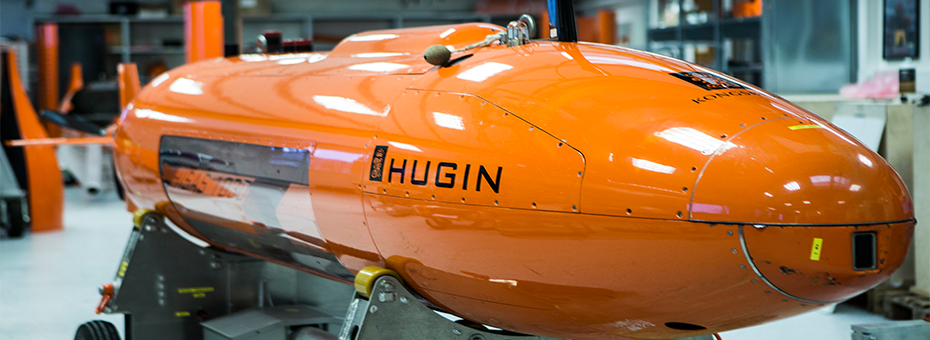Kongsberg Maritime (KM) is a wholly owned subsidiary of the Kongsberg Group (KONGSBERG). With over 4000 employees across 18 countries, it delivers systems for dynamic positioning and navigation, marine automation, safety management, cargo handling, subsea survey and construction, maritime simulation and training, satellite positioning and autonomous solutions. The Subsea Division of KM hosts the organization’s hydro-acoustic activities, developing and delivering underwater sensor systems for mapping, positioning and communication, fish-finding and catch-monitoring, aquaculture and ocean science, naval sonars and marine robotics.
Faced with pressure from low-cost competitors and increasingly tough market conditions, in 2014 KM Subsea launched the company’s corporate lean programme – The KONGSBERG Way. The KONGSBERG Way forms the basis for a holistic lean business system that builds on the ‘world class’ vision and core values of KONGSBERG, and aligns them towards the objective of successful lean transformation through adopting a set of five fundamental lean principles: Customer Value, Process Stability, Total Quality, Flow Efficiency and Continuous Improvement. Together, these principles provide a common direction towards KM Subsea’s goal of sustained lean growth. In 2017, the company received Lean Forum Norway’s Lean Enterprise of the Year Award – recognizing the company for successfully applying lean thinking and practice in an extremely complex production process. The award also recognized the efforts that the company has made with lean supplier development thorough the Network for Supplier Innovation initiative in the period 2014-2017.
Revisiting the phenomenon of Kyoryokukai
When KM Subsea commenced its lean journey in 2014, the company quickly realised that a major part of the value-adding work was to be found outside of the organisation. In fact, they concluded that as much as 80% of the work required to bring a product into fruition was actually carried out in the supplier network. The supplier relationships were in themselves also complicated to say the least. For example, logistically, components and products move back and forth between KM Subsea and their suppliers throughout the development and manufacturing process. In addition, some of the suppliers also serve each other, while in some cases simultaneously compete for the customer’s business. Therefore, the decision was made to include a network of strategic- / preferred suppliers in the learning process that was to come, in order to establish a common understanding of the lean philosophy for both KM and its supply chain partners.
A system that promotes the dissemination of lean thinking and practice throughout the supply network is the Kyoryokukai, or supplier association – an institution that has had a significant presence in the Japanese automotive industry since 1939, when Toyota formed the first supplier association in history to promote lateral inter-supplier learning. The Kyoryokukai promotes integration activities amongst its members through top-management group meetings, quality assessments and audits, and tries to achieve better coordination in the supply network through greater information sharing and openness. Hines & Rich (1998) define Kyoryokukai as “a mutually benefiting group of a company’s most important suppliers brought together on a regular basis in order to achieve strategic and operational alignment through the development of awareness, education and implementation programmes designed to achieve both radical and incremental improvements”.
Creating space to think
In collaboration with Innovation Norway, the Norwegian Centre for Expertise in Systems Engineering (NCE/SE) and Sintef Raufoss Manufacturing (SRM), KM Subsea proceeded to establish what we recognise as the first known example of Kyoryokukai in Norway – The Network for Supplier Innovation. The company invited six of its strategic- / preferred suppliers to join the network, which was geared primarily towards fostering lean-learning amongst the executives of the companies. The programme itself outlined six different learning mechanisms:
- Co-learning lean basics at Lean Lab, Raufoss, Norway
- Study visits to exemplary lean enterprises in Sweden, the Netherlands and Germany
- Individual company consultations
- Individual company lean self-assessmentsInter-organisational lean assessments
- Inter-organisational lean assessments
- Extended value stream mapping
The purpose of the different learning mechanisms was to create a space to think for the participants. Typically, the kick-off event at the Lean Lab in Norway was perceived as somewhat awkward for the participants, with the senior management staff of the various companies exhibiting scepticism and insecurities amongst peers and in some cases competitors. However, as Shiba-san has taught us, “the night session is the most important session”, and sure enough once participantswere given the chance to relax and get to know each other better in social surroundings, the insecurities soon diminished and the lean discussions (amongst others) started to flow.
What the participants discovered after a while was that the whole lean process was itself very much built around go and see (Genchi Genbutsu), think and reflect (Hansei), improve and learn (Kaizen). This promoted a process of double-loop learning (changing the way we think about the way we do things) as opposed to single-loop learning (simply changing the way we do things).
Build mutual respect through collaborative learning.
An alternative and all too familiar approach to supplier development could have been for KM Subsea to simply prescribe lean thinking and practice as a requirement for its suppliers in order to win its business, whereby suppliers are instructed to implement lean tools and KM Subsea follow up on said implementation. Instead, KM Subsea opted for an approach built on mutual respect that focussed on the co-creation of value together with a set of its key suppliers through a process of inter-organizational learning, offering space to think about value creation rather than purely governing the extraction of value. This process has also led to the opportunities for resource sharing amongst customer and supplier, leading to more flexibility in the use of resources and developing people across organisations.
In the end, the foundation for collaborative learning in such a complex network is mutual respect and teamwork, and challenging the way we think about work to be done through a process of Genchi Genbutsu, Hansei and Kaizen.





